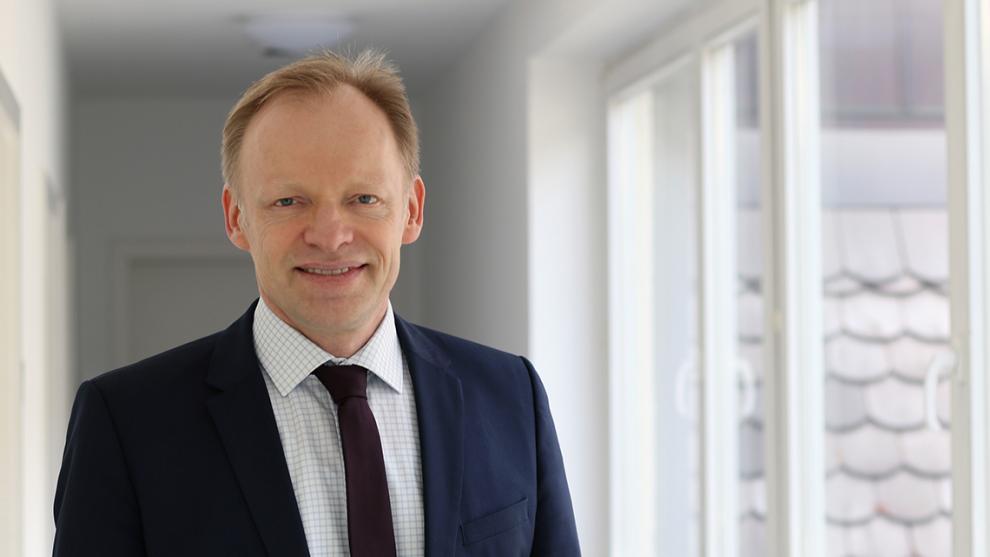ifo Media Center
The ifo Institute invites you to participate in the discussion of interesting economic topics via the Internet. In our ifo Media Center a whole series of remarkable events are available and can be viewed in full length. We also record selected speeches and presentations given by employees or at events and make them available in our Media Center.

Institut ifo : 56,2 % des entreprises allemandes souffrent des conséquences de l'épidémie du coronavirus
L'économie allemande subit de plein fouet les conséquences du coronavirus. Actuellement, 56,2 % des entreprises ressentent les effets négatifs de l'épidémie. C'est ce qui ressort du tout dernier sondage de l'Institut ifo auprès de 3400 entreprises des secteurs de l'industrie, du commerce et des services. Touchés à près de 96 %, les voyagistes et agences de voyage éprouvent les difficultés les plus graves. Avec 79 % de leurs entreprises, l'hôtellerie et la restauration sont aussi sévèrement touchées. Seules 2,2 % des sociétés interrogées font état d'effets positifs.
ifo President Fuest Supports ECB
The ifo President Clemens Fuest has applauded the decisions by the European Central Bank (ECB). “Overall, the ECB’s decisions are a move in the right direction,” he said in Munich on Thursday. “They are aimed primarily at counteracting liquidity problems arising in banks and small and medium-sized enterprises as a result of the crisis. Extending bond purchases with a focus on bonds from private issuers can contribute to this, as can improving the terms of the targeted longer-term refinancing operations (TLTRO III).”
ifo Institute: 56.2 Percent of German Companies Are Suffering from the Consequences of the Coronavirus Epidemic
The German economy is suffering considerably from the consequences of the coronavirus epidemic, with 56.2 percent of companies currently experiencing negative effects. This is the result of a recent survey the ifo Institute conducted of almost 3,400 service providers as well as companies in industry and trade. The situation is worst for tour operators and travel agencies, where nearly 96 percent are seeing a negative impact. At 79 percent, companies in the hospitality and restaurant industry are also being severely affected. Only 2.2 percent of all companies report a positive effect.
Allemagne: Des économistes préconisent un renforcement des mesures de soutien à l'économie :report de paiement et réduction des impôts exigibles – suppression avancée de l'impôt de solidarité – renoncement à l'équilibre budgétaire
Un groupe d'économistes de renom en Allemagne s'est déclaré favorable au train de mesures adopté par la coalition gouvernementale afin de soutenir l'économie allemande face à la crise du coronavirus. Ces économistes insistent cependant sur la nécessité d'aller plus loin. « L'extension de ces mesures s'impose dès aujourd'hui », déclarent les sept experts dans un document d'étude de 15 pages publié ce mercredi. « Le dogme d'un budget national équilibré doit être abandonné si cela s'avère nécessaire pour supprimer les effets préjudiciables du coronavirus ; il faudra en outre exploiter toutes les marges de manœuvre െoffertes par les règles du frein à l'endettement », précisent-ils.
German Economists Want More Aid for the Economy: Deferral and Reduction of Tax Payments – Early Abolition of Solidarity Surcharge – Acceptance of Deviation from Black Zero
A group of prominent economists support the German federal coalition’s package of aid measures for the economy in the face of the coronavirus crisis. At the same time, however, they are calling on the government to do more. “The need is already there for more far-reaching steps,” says a 15-page paper by the seven economists, which was published on Wednesday. “If necessary, in order to remedy the economic effects of the coronavirus crisis, the government budget should move away from the black zero and use should be made of the room for maneuver that the debt brake offers,” they write.
ifo President Fuest: OECD Reforms to Corporate Taxation: Avoiding International Tax Conflicts Is More Important Than Aligning Taxation with Value Creation
The ifo President Clemens Fuest has called for a change in the OECD’s tax plans. “The OECD initiative for reforming international corporate taxation should lean less toward aligning taxation with value creation,” he writes in an article for ifo Schnelldienst. Instead, Fuest calls for a return to taxation according to commonly established rules. Otherwise, there is a risk of double taxation and discrimination against cross-border investments.
ifo Institute: German Industry Expecting Slight Increase in Production
In February, German industry expected production to increase slightly in March, April, and May. This is the result of the latest survey conducted by the ifo Institute. The ifo index for production expectations rose from plus 2.2 points to plus 2.5 points in February. However, the survey was completed before the spread of the coronavirus had reached its current extent.
Institut ifo : stabilisation du volume des commandes enregistrées par l'industrie allemande au mois de janvier 2020
L'industrie allemande a enregistré un volume de commandes quasiment inchangé au mois de janvier. Pour la première fois depuis le printemps 2019, le volume des commandes a donc cessé de diminuer. C'est ce qui ressort de la toute dernière enquête de l'Institut ifo selon laquelle l’indice correspondant a progressé de – 8,4 points à + 0,2 point au cours du mois de janvier, soit avant que la propagation du coronavirus n’atteigne sa pleine ampleur.
ifo Institute: German Industry’s Order Backlog Unchanged in January 2020
German industry’s order books were almost unchanged in January, bringing to an end to the downward trend that took hold in spring 2019. This is the result of the latest ifo Business Climate survey, according to which the index rose from minus 8.4 points to plus 0.2 points in January, i.e., before the spread of the coronavirus had reached its full extent.
ifo: Researchers Warn of International Tax Conflicts through Digitalization and Globalization
The international research group EEAG has called for coordinated reforms to international taxation rules and national tax systems. Otherwise, tensions in the international tax system could lead to conflicts between countries. These would be fueled by the digitalization of the economy and globalization, including the growing economic importance of emerging markets. This is the finding of the new report on Europe entitled “Fair Taxation in a Mobile World.” The report was released by the EEAG and EconPol Europe, of which ifo President Clemens Fuest is a member.
Institut ifo : des chercheurs mettent en garde contre les conflits fiscaux internationaux pouvant résulter de la transformation numérique et de la mondialisation
Le groupe de recherche international EEAG préconise des réformes coordonnées des règles fiscales internationales et des systèmes fiscaux nationaux, ce qui permettrait de réduire les tensions dans le système fiscal international susceptibles de conduire à des conflits entre États. Ces tensions seraient alimentées par la numérisation de l’économie et la mondialisation, et notamment par le poids économique croissant des pays émergents. Telle est la conclusion du nouveau rapport européen « Fair taxation in a mobile world » (« Une imposition juste dans un monde mobile ») de l’EEAG/EconPol Europe, qui compte parmi ses membres Clemens Fuest, le président de l’Institut ifo.
Institut ifo : l'industrie automobile allemande se prépare à des temps difficiles
L'industrie automobile allemande se prépare de nouveau à des mois difficiles. C'est ce qui ressort de la toute dernière enquête conjoncturelle de l'Institut ifo. Selon cette dernière, l'indice de la demande dans ce secteur a régressé, passant de − 2,1 points en janvier à − 11,8 points en février. Les attentes en matière d'exportations ont également baissé, passant de − 5,2 points en janvier à − 15,4 points en février. La situation des employés du secteur devient particulièrement difficile : l'indice lié à la planification du personnel s'est affaissé, passant en effet de − 31,9 points en janvier à − 41,8 points en février.
ifo Institute: German Automotive Industry Braces for Hard Times
Germany’s automotive industry is preparing itself for more hard times over the next several months. This is the result of the most recent ifo Business Climate survey. The industry’s demand index declined in February, falling to minus 11.8 points from minus 2.1 in January. Export expectations dropped to minus 15.4 points from minus 5.2 in January. The situation will hit the workforce particularly hard, with the personnel planning index sliding from minus 31.9 points in January to minus 41.8 points in February.
Germany: ifo Institute Welcomes Immigration of Skilled Workers Act
The ifo Institute welcomes the new Immigration of Skilled Workers Act. “In view of its aging population, Germany will face an increasing shortage of skilled workers in the coming years. The new law helps to attract more skilled workers and make Germany more attractive for immigrants,” says Panu Poutvaara, Director of the ifo Center for International Institutional Comparisons and Migration Research.
ifo Business Climate Eastern Germany on an Upward Trajectory (February 2020)
In February 2020, the ifo business climate for eastern Germany brightened again somewhat. The ifo Business Climate Index for the region’s economy as a whole rose from 98.8 to 99.4 points. Among the companies surveyed, both their assessments of the current situation and their business expectations improved. Overall, the eastern German economy seemed to be back in a better mood in February.
ifo Employment Barometer Falls Markedly (February 2020)
German companies have become notably more reticent about looking for new staff. The ifo Employment Barometer fell to 98.1 points in February after measuring 99.6 points in January. This is the largest decline since December 2008. The optimism that prevailed on the German labor market at the beginning of the year has evaporated.
Allemagne : L’indice ifo des exportations a chuté
Le moral des exportateurs allemands s’est détérioré. Les prévisions de l’Institut ifo en matière d’exportations dans l’industrie sont passées de plus 0,8 en janvier à moins 0,7 point en février. Les développements entourant le coronavirus ne laissent guère espérer d’amélioration à court terme.
Germany: ifo Export Expectations Fall
Sentiment among German exporters has worsened. The ifo Export Expectations for manufacturing fell to minus 0.7 points in February from plus 0.8 points in January. German exports are currently making no headway. In the short term, developments surrounding the coronavirus leave little room for improvement.
Allemagne : L’indice ifo du climat des affaires remonte très légèrement
Le moral des dirigeants des entreprises allemandes s’est très légèrement amélioré. L'indice ifo du climat des affaires est passé de 96,0 points en janvier à 96,1 points en février. Si les entreprises ont estimé que leur situation actuelle s’était légèrement dégradée, elles sont moins pessimistes dans leurs attentes quant aux six prochains mois. L’économie allemande ne semble pas affectée par les développements entourant le coronavirus Covid-19. Les résultats des sondages conjoncturels et d’autres indicateurs laissent prévoir une croissance économique de 0,2 % au premier trimestre.
ifo Institute and Immowelt: Berlin’s Rent Cap Puts the Brakes on Rent for Existing Apartments, but Pushes Rent Up for New Buildings
In Berlin, the rent for almost all apartments advertised on real estate portal immowelt.de (96.7 percent) is above the rent cap. In 83.5 percent of cases, the rent exceeds the cap by over 20 percent. This is the result of an analysis conducted by the ifo Institute and Immowelt. When the law comes into force, rents 20 percent above or higher must be reduced – even if the rental agreement was signed before the cut-off date in June 2019.




